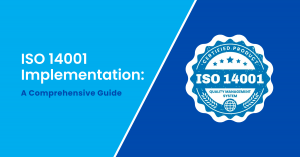Social Compliance Audit - Ethical Audit Services According to SA 8000
Social Compliance Audit
Social Compliance Audit - Ethical Audit According To SA 8000
Social compliance issues can jeopardize your business’s reputation! Conduct Social Compliance Audit to identify and address potential compliance gaps. Safeguard your brand’s integrity and ensure ethical practices throughout your supply chain. Book your Social Compliance Audit today!
SOCIAL COMPLIANCE AUDIT
What Is A Social Compliance Audit, And Why Is It Important?
In an increasingly globalized and interconnected world, businesses are expected to generate profits and shoulder their share of social responsibility. The Social Compliance Audit , or social audit, is a comprehensive tool that provides a robust framework for ensuring this responsibility.
What is Social Compliance Audit (SA 8000)?
A Social Compliance Audit (SA 8000), also known as Social Audit, is an impartial evaluation of a company’s adherence to a set of
social standards
or principles. These may encompass a broad range of areas, including but not limited to labor practices, human rights, environmental impacts, and health and safety measures. The primary goal of this audit is to verify that the company is not only complying with local and international laws but also respecting ethical standards and promoting sustainable practices.
Why is Social Compliance Audit Important?
As the world becomes more socially conscious, the significance of a social audit grows immensely. It’s an essential instrument that allows a company to assess, manage, and enhance its social performance, reinforcing its commitment to responsible business practices. Now, let’s delve into why a Social Compliance Audit is critical for businesses, especially those outsourcing from other countries.
Ensuring Ethical Business Practices
In the era of information and transparency, a company’s reputation is invariably linked to its social and ethical conduct. A Social Compliance Audit helps businesses ensure that their operations, particularly those involving foreign supply chains, abide by the highest ethical standards. This bolsters the company’s image and fosters trust among stakeholders, customers, investors, or employees.
Risk Mitigation
In a complex global supply chain, the risk of non-compliance with social standards can be significant, potentially leading to legal repercussions, reputational damage, or operational disruptions. Social Compliance Audits act as a risk management tool, identifying potential issues and enabling proactive mitigation strategies.
Enhancing Brand Value
A Social Compliance Audit can significantly enhance a company’s brand value. In today’s market, as consumers become more mindful of the social and environmental consequences of their buying decisions, businesses have a greater opportunity to stand out and gain a competitive advantage by showcasing their dedication to ethical and sustainable practices.
Fostering Stakeholder Engagement
A Social Compliance Audit can foster engagement among various stakeholders. As it demonstrates their commitment to social responsibility, businesses can engage more effectively with their employees, customers, shareholders, and the wider community.

Social Compliance Audit
Benefits Of Social Compliance Audit (SA 8000)
The benefits of a Social Compliance Audit (
SA 8000
) extend beyond mere ethical correctness or compliance with laws. It can drive innovation and competitiveness, positioning businesses for success in an increasingly conscious and interconnected global marketplace. Here are the benefits of Social Compliance Audit:
Sustainable Growth and Long-Term Profitability
A business that embeds social responsibility in its DNA can realize sustainable growth and long-term profitability. The social audit ensures that a company’s practices align with societal expectations and global standards, which can lead to increased customer loyalty, better stakeholder relationships, and enhanced market position over time. It is the bridge that connects ethical conduct with commercial success.
Supply Chain Transparency
A Social Compliance Audit becomes crucial for maintaining supply chain transparency in a world where businesses are as good as their worst supplier. It helps businesses trace their products to the source, ensuring each production stage adheres to acceptable social and ethical standards. This transparency mitigates risks and enhances trust in the brand, which can translate into customer loyalty and profitability.
Improved Operational Efficiency
A Social Compliance Audit can increase operational efficiency by uncovering inefficiencies and labor-related issues within the supply chain. Through a thorough examination of working conditions, wages, and overtime policies, businesses can identify areas of improvement and implement corrective measures, resulting in cost savings and a more streamlined operation.

Social Audit Requirements
Social Compliance Audit Requirements
Social Compliance Audit Requirements: An Integral Component of Ethical Business Practices
In an increasingly globalized and interconnected world, a company’s social responsibility extends beyond its immediate stakeholders. It encompasses a broader commitment to ethical practices that positively impact society and the environment. A critical aspect of this commitment is adhering to social compliance, which has gained prominence in recent years. Ensuring social compliance involves conducting regular audits to assess and monitor a company’s adherence to legal, ethical, and sustainable practices.
Understanding Social Compliance Audits
A social compliance audit is a comprehensive review of a company’s operations, examining various facets, including labor rights, health and safety, environmental impact, and business ethics. These audits ensure companies adhere to local and international regulations, industry standards, and ethical guidelines. Independent third-party firms often conduct them to provide an objective and impartial perspective.
Key Elements of Social Compliance Audit Requirements
Several key elements play a pivotal role in setting the
requirements
for social compliance audits. These include:
- Labor Rights and Working Conditions: This aspect evaluates whether a company adheres to labor laws, such as fair wages, working hours, and child labor restrictions. Auditors scrutinize the company’s policies and practices, ensuring they align with international labor standards such as those outlined by the International Labour Organization (ILO).
- Health and Safety: Auditors assess the company’s commitment to employee health and safety. This involves examining the work environment, safety protocols, and emergency preparedness, ensuring they meet standards set by institutions like the Occupational Safety and Health Administration (OSHA) in the U.S.
- Environmental Stewardship: In the era of climate change and environmental degradation, sustainable business practices are non-negotiable. Auditors analyze a company’s environmental policies, waste management, energy usage, and carbon footprint to ensure compliance with environmental regulations and sustainability goals.
- Business Ethics: This involves evaluating the company’s adherence to ethical business practices, including anti-corruption measures, fair competition, and transparent dealings. Auditors check whether the company’s code of conduct aligns with international ethical standards and that it is effectively enforced.
The Social Audit
Implementing The Social Audit Process: A Comprehensive Guide
Implementing an effective social audit process is essential to ensure that your organization remains accountable to its stakeholders. This rigorous evaluation of your organization’s social, environmental, and economic impact enables you to monitor progress and make informed decisions. Below are the essential steps for implementing a successful social audit process, incorporating best practices from renowned organizations:
Start by establishing the goals and parameters of your social audit. Define the objectives, such as identifying opportunities for improvement, evaluating your organization’s impact on society, or monitoring compliance with social and environmental standards. The scope of the audit should consider the relevant dimensions of your organization’s operations, including its products, services, supply chains, and internal practices.
Engaging a professional, impartial third-party inspection company, such as
Tetra Inspection
, is an essential step in establishing a robust social audit process. This approach ensures an objective analysis of your organization’s social, environmental, and economic impact, free from potential internal biases.
The impartiality of a third-party inspection company ensures that your audit results are reliable and credible. Their external perspective brings a fresh look at the legitimacy and the credential of the supplier.
The impartiality of a third-party inspection company ensures that your audit results are reliable and credible. Their external perspective brings a fresh look at the legitimacy and the credential of the supplier.
To guide your social audit, create a framework encompassing relevant social, environmental, and economic criteria. This can be based on recognized international standards, such as the Global Reporting Initiative (GRI), the International Organization for Standardization (ISO) 26000, or the United Nations Sustainable Development Goals (SDGs). Tailor your framework to your organization’s context and objectives, and ensure it includes qualitative and quantitative indicators.
Gather information from diverse sources, including financial records, internal reports, surveys, interviews, and on-site visits. This will enable you to assess your organization’s performance against the selected criteria. Analyze the data using appropriate methodologies, such as benchmarking against industry peers or historical trends, and identify areas of strength and weakness.
Utilize your data analysis to pinpoint areas where your organization can enhance its social and environmental performance. Consider the perspectives of different stakeholders and strive for a balanced approach that aligns with your organization’s values and strategic objectives. Develop actionable recommendations, and set realistic targets and timeframes for their implementation.
Transparently share the findings of your social audit with internal and external stakeholders. There are multiple avenues through which this can be accomplished, including sustainability reports, presentations, or online platforms. Engaging stakeholders fosters trust, encourages feedback, and promotes ongoing dialogue.
Implement the recommendations from your social audit, and establish mechanisms to monitor their impact. Regularly review and update your evaluation framework, ensuring it remains aligned with your organization’s evolving context and objectives.
Continuously seek opportunities for improvement, and embed the social audit process as an integral component of your organization’s strategy and culture.
Continuously seek opportunities for improvement, and embed the social audit process as an integral component of your organization’s strategy and culture.
Social Compliance Audit
Social Compliance Audit By Tetra Inspection
Expertise And Experience
With years of experience conducting social compliance audits, Tetra Inspection has built a solid reputation in the industry. Our team of highly skilled auditors is well-versed with international standards like SA 8000, ensuring your audit is both comprehensive and reliable.
Customized Approach
Tetra Inspection understands that every organization is unique. We adopt a tailored approach to each audit, focusing on your business’s specific needs and requirements. This personalized approach ensures an in-depth analysis that will effectively identify areas of improvement.
Commitment To Ethical Standards
Tetra Inspection is dedicated to upholding the highest ethical standards in its audits. By choosing Tetra Inspection, you can be confident that your organization’s social and environmental responsibilities are being thoroughly evaluated and addressed.
Comprehensive Reporting
Clear and concise communication is key to understanding the results of your social compliance audit. Tetra Inspection provides detailed reports that outline findings and offer actionable recommendations to help your organization improve its practices.
SCHEDULE TODAY
Schedule Your Furniture Inspection Today
Trust our expert team of highly experienced inspectors to thoroughly inspect your products before
shipment, minimizing risks and ensuring compliance with international standards.
shipment, minimizing risks and ensuring compliance with international standards.
Questions About Social Compliance Audit
Common Questions About Social Compliance Audit, Answered (FAQ)
A Social Compliance Audit objectively evaluates a company’s adherence to
social standards
or principles, including labor practices, human rights, environmental impacts, and health and safety measures.
SA 8000 is an international standard for social accountability that focuses on improving working conditions and promoting ethical practices throughout the supply chain.
Tetra Inspection conducts Social Compliance Audits using a customized approach tailored to each business’s specific needs and requirements, ensuring comprehensive and reliable evaluations.
The frequency of Social Compliance Audits may vary depending on the organization’s size, industry, and risk factors. It’s generally recommended to conduct audits at least once a year or as needed to maintain compliance.
BLOG
Related Articles
Trust our expert team of highly experienced inspectors to thoroughly inspect your products before
shipment, minimizing risks and ensuring compliance with international standards.
shipment, minimizing risks and ensuring compliance with international standards.





